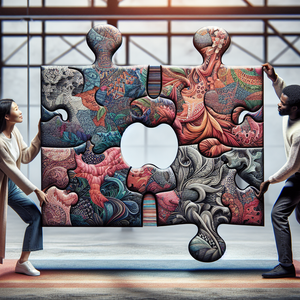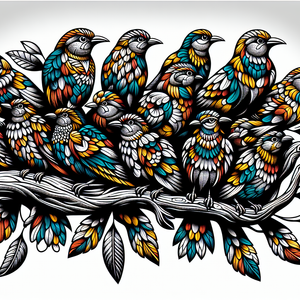The Intersection of Fashion and Technology

The concept of wearable technology has progressed from rudimentary fitness trackers to sophisticated devices that serve multiple functions. Companies like Apple, Fitbit, and Samsung have pioneered smartwatches that not only tell time but also monitor health metrics, receive notifications, and even facilitate payments. However, the latest trend is about integrating these functionalities into stylish designs that appeal to fashion-conscious consumers. For instance, brands like Fossil and Garmin have collaborated with fashion designers to create smartwatches that do not compromise on aesthetics for functionality. Their products feature interchangeable bands made from premium materials, vibrant colors, and customizable interfaces that allow users to express their personal style. This combination of fashion and functionality invites a broader audience to embrace technology, particularly those who previously shied away from wearable devices due to their lack of style.
Changing Consumer Perceptions
The merging of fashion and technology is shifting how consumers view wearables. Traditionally perceived as utilitarian gadgets, wearables are now seen as essential fashion accessories. This shift is evident in the growing popularity of smart jewelry, such as rings and bracelets, which provide notifications and health tracking in elegant designs. Additionally, high-end fashion houses like Gucci and Louis Vuitton have begun to explore the wearables market, launching products that showcase their signature aesthetics while incorporating advanced technology. This trend not only elevates the status of wearable technology but also encourages consumers to view these devices as integral to their fashion choices, rather than mere gadgets. For instance, Gucci's smartwatch combines luxury with functionality, featuring a stylish design paired with smart capabilities that appeal to a high-end clientele.
The Future of Fashion Technology
Looking ahead, the future of fashion technology promises even more exciting innovations. As augmented reality (AR) and virtual reality (VR) technologies advance, we may witness the emergence of virtual fitting rooms, where consumers can try on clothes digitally before making a purchase. This technology not only enhances the shopping experience but also minimizes the environmental impact of returns, a significant concern for the fashion industry. Moreover, advancements in smart textiles are paving the way for clothing that can change color, regulate temperature, or even monitor biometric data. Brands like Athos are already experimenting with smart fabrics that track muscle activity during workouts, merging performance and style in a whole new way. As these technologies become more accessible, we can expect a dramatic transformation in how we engage with our wardrobes.
Implications for the Fashion Industry
The intersection of fashion and technology raises important questions about the future of the industry. As consumers increasingly demand stylish yet functional products, brands must adapt to meet these expectations. This evolution may lead to a more sustainable fashion model, where technology enables brands to produce less waste by creating versatile pieces that serve multiple functions. However, the integration of technology into fashion also necessitates a careful approach to design and marketing. Brands must consider the ethical implications of data collection and privacy, ensuring that consumers feel secure in using their products. Transparency about how data is used will be crucial in building trust and encouraging wider adoption of fashion-forward wearables.
The intersection of fashion and technology is redefining the landscape of wearables, offering fresh perspectives on how we view and interact with our clothing and accessories. As designers continue to innovate and integrate technology into their creations, consumers can look forward to a future where style and function coexist harmoniously. This evolution not only enhances the consumer experience but also challenges the fashion industry to rethink its approach to sustainability and ethical practices. As we embrace this new era of fashion-forward wearables, the possibilities are endless, promising a dynamic and exciting future for both consumers and creators alike.
Wearable Technology Designer
Apple, Fitbit, Fossil
Job Description
Develop innovative designs for fashion-forward wearables that merge style with functionality.
Collaborate with engineers and product developers to ensure technical feasibility and aesthetic appeal.
Stay updated with the latest trends in both fashion and technology to create cutting-edge products.
Skills Required
Proficiency in design software (e.g., Adobe Creative Suite)
Understanding of textile technologies
Strong portfolio showcasing previous design work
UX/UI Designer for Fashion Apps
ASOS, Zara
Job Description
Create user-friendly interfaces for mobile applications related to fashion technology, enhancing the customer experience.
Conduct user research and usability testing to gather feedback and iterate on design solutions.
Collaborate closely with developers to ensure seamless integration of design and functionality.
Skills Required
Experience with wireframing and prototyping tools (e.g., Sketch, Figma)
Knowledge of user-centered design principles
Familiarity with fashion industry trends
Smart Textile Engineer
Athos, Nike
Job Description
Research and develop innovative smart fabrics that can monitor biometric data or adapt to environmental conditions.
Collaborate with fashion designers to integrate smart textiles into wearable products effectively.
Conduct testing to ensure durability and functionality of smart fabrics in real-world conditions.
Skills Required
Background in materials science or textile engineering
Experience with conductive materials
Strong analytical skills
Fashion Tech Marketing Specialist
Gucci, Louis Vuitton
Job Description
Develop and execute marketing campaigns that promote wearable technology and smart accessories.
Analyze market trends and consumer behavior to tailor messaging and positioning strategies.
Collaborate with product teams to create compelling narratives around new product launches.
Skills Required
Strong communication and social media skills
Experience in digital marketing
Keen understanding of both fashion and technology markets
Data Analyst for Fashion Retail
Adidas, H&M
Job Description
Analyze consumer data and purchasing patterns to inform product development and marketing strategies for wearable tech.
Work with cross-functional teams to identify opportunities for improving customer experiences through data insights.
Develop reports and visualizations to present findings to stakeholders.
Skills Required
Proficiency in data analysis tools (e.g., Excel, SQL, Tableau)
Strong analytical thinking
Experience in retail analytics


